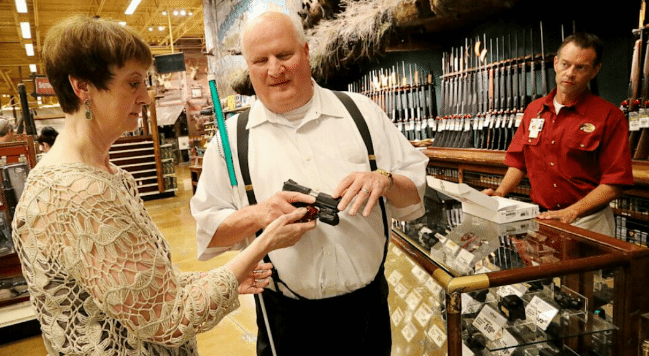An Iowa law allowing the legally or completely blind to acquire permits to carry guns in public has stirred up debate as to whether or not the visually impaired should have “full access” to firearms.
“Up until 2011, it was solely up to the sheriff of your county who decided who got a gun permit and who did not,” Cedar County Sheriff Warren Wethington, who has been granting gun permits to the visually impaired since he became sheriff in 2007, told ABCNews.com. “So you were basically at the mercy of whether you had a pro-gun sheriff or an anti-gun sheriff.”
In 2010, Iowa became a “shall-issue” state when the legislature amended a law to create a uniform procedure for issuing gun permits statewide. As a result, Iowa residents could get a gun permit so long as they did not have a criminal background or history of mental illness, Wethington said.
“Once those restrictions were limited, we basically had to approve anybody who applied for a permit,” said Delaware County Sheriff John LeClere. “Our opinion no longer matters and our information on an individual, as far as their character, was something we could no longer consider.”
While applicants need to take a firearm safety course to obtain a permit, it is available online and does not need to include hands-on firearms training, which “makes it a little difficult,” LeClere said.
“If we have a person who is possibly eyesight impaired, he is certainly entitled to defend himself,” he said. “But should he be carrying [a firearm] in public? Should there be further restrictions placed on him based on eyesight?”
“I have some reservations about full access for people who are blind,” said Patrick Clancy, superintendent of the Iowa Braille and Sight Saving School in Vinton, Iowa. “That’s just because shooting requires a lot of vision to be accurate outside of controlled settings with safety courses.”








